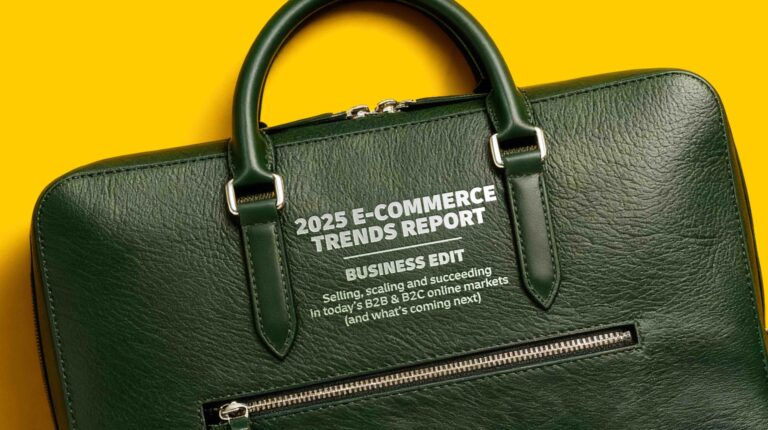DHL has released its first global e-commerce business report, which looks at how companies are selling, scaling and succeeding in today’s evolving digital landscape.
The report examines how omnichannel strategies, AI-powered personalization, cross-border expansion and an emphasis on sustainability and logistics have become critical in achieving business objectives.
For the ‘business edition’ in its series of 2025 E-Commerce Trends Reports, DHL surveyed 4,050 e-commerce businesses across 19 global markets in Europe, the Americas and Asia Pacific.
It was found that AI adoption is gaining momentum, with almost half of the companies reporting its implementation in their operations. Among B2B e-tailers, usage was even higher at 61%. Key applications include personalization, content generation and customer service.
The report also highlighted the growth of social commerce. 87% of businesses have a social media presence, with TikTok and Instagram proving most popular. 76% of e-tailers expect social sales to grow in the next five years.
Sustainability has become central to businesses strategies, with 85% saying it is important. Many retailers are cutting plastic, reselling and going circular.
Pablo Ciano, CEO of DHL e-Commerce, said, “It’s not just about trends; it’s about transformation and the heartbeat of local and global e-commerce.
“Businesses are scaling faster, selling smarter,nd prioritizing sustainability like never before. At DHL, we’re proud to support this momentum, helping retailers deliver with speed, trust and responsibility in every market they serve.”
Further key findings
- Logistics – 96% of retailers say their logistics offering is key to securing sales. 86% say free delivery and returns improve sales.
- B2B retailers and online selling – With 78% of B2B retailers expecting website sales to grow and 61% already using AI across their platforms, the B2B e-commerce landscape is rapidly evolving to mirror the speed, personalization and innovation of consumer shopping.
- In 2025, e-commerce means selling anywhere – 63% of retailers sell on three or more platforms, 68% on Amazon and 87% are active on social media.
- Cross-border commerce – 64% of e-commerce retailers now sell internationally – rising to 88% for large businesses and 85% of medium-sized ones. They’re also streamlining cross-border trade by registering for IOSS (Import One-Stop Shop) and securing EORI (Economic Operators Registration and Identification) numbers, with over half opting for DDP (Delivered Duty Paid) incoterms to simplify delivery and duty handling.
- Generational shifts – Gen Z and Millennials dominate weekly online purchases, while Gen Alpha is emerging as a new influence on household buying.
- Subscriptions – 52% of businesses offer product subscriptions, with 14% offering delivery and returns subscriptions.
- Black Friday – 84% of retailers will participate in 2025, with 60% reporting increased sales year on year. However, microbusinesses and sole traders revealed more modest results with only 48% seeing increased sales.
- Out-of-home delivery locations are essential for big business and practical for smaller players – 96% of large and medium e-commerce retailers say they’re key to driving sales and repeat business, while 53% of sole traders rely on them the most for sending parcels.
In related news, DHL has opened its upgraded Innovation Center in Troisdorf, Germany





